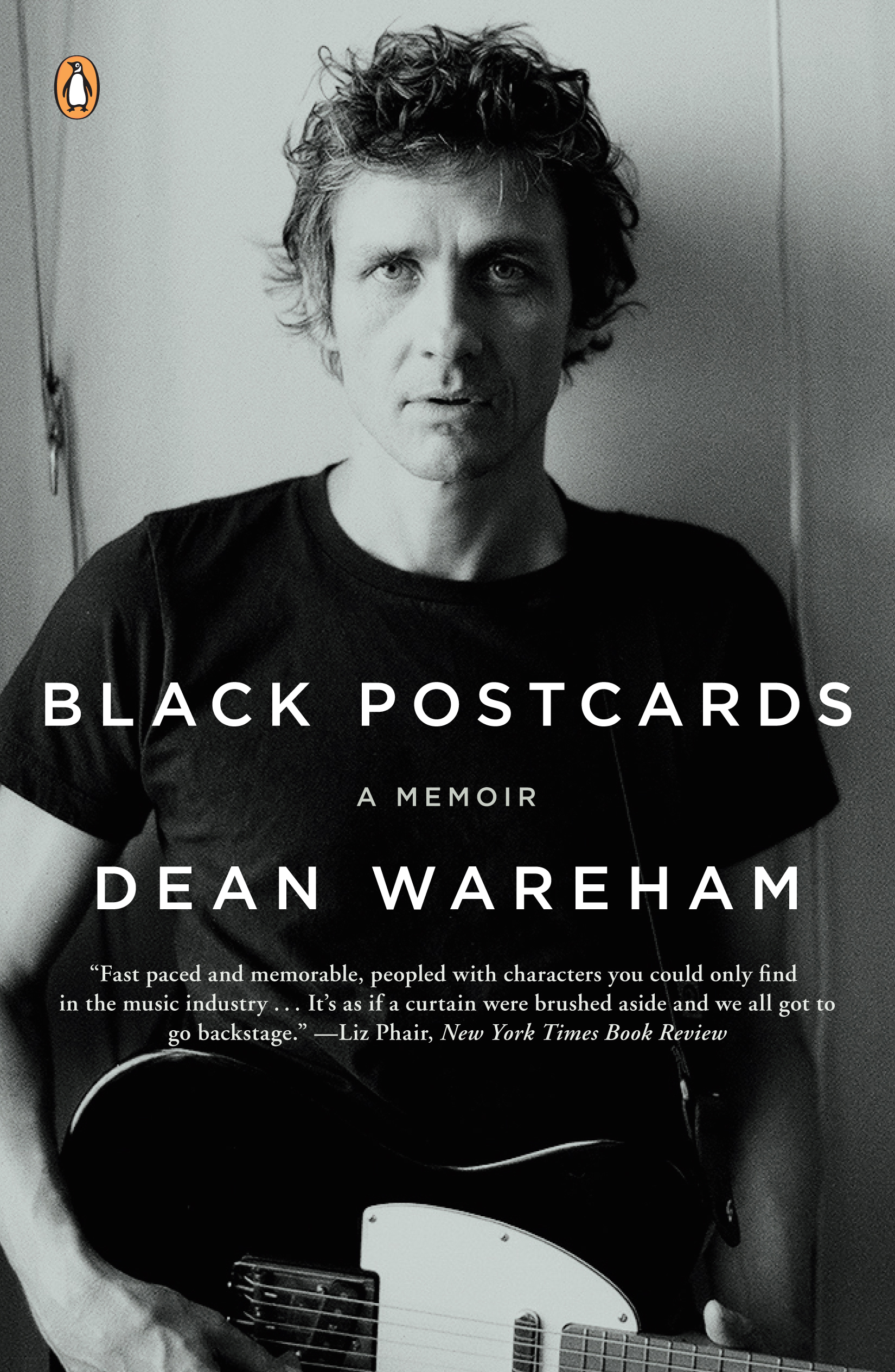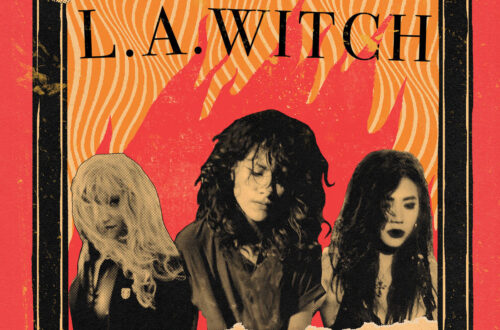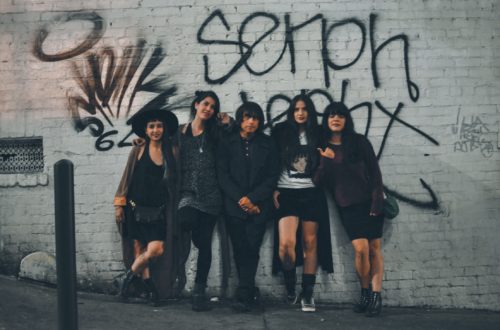It’s hard for me to recall the first time I heard Dean Wareham.
This musical moment most likely hit in a midwestern, red-bricked dormitory. Tune your time turning musical transport to 1989-1990. Let us revisit the salad years of an under-utilized undergraduate college. The VU-soaked, jangle-garage vibe was in heavy rotation on the college radio airwaves of that personally seminal era. I read a lot of music mags at the time, too. I recall the full-throated critical endorsements of the Velvets on every best-of and must-have list of the indie and commercial rags.
In 1990, I was a poorly dressed, bespectacled college sophomore skipping my required reading for beer benders and AP music reviews. A few older guys had pretty cool music collections: Joy Division, Husker Du, Meat Puppets, REM, and the Feelies. A college pal, PJ McDonald, loaned me a soggy copy of 1969: Velvet Underground Live. Sure, I had heard Lou Reed and the Velvets on Cleveland’s commercial radio as a kid. But, it wasn’t until my kool-cat fraternity bro loaned me the double vinyl live record that I fully understood the sound and appeal. The multiple 10+ minute tracks helped me ingest the avant-driving drone of the Velvet’s seemingly simple, raw rock noise.
the Dean Wareham fronted G500 had a dreamy, jangly vibe that floated just below irresistible, humming melodies.
Enter the Galaxie 500. From 1987 – 1991, the Dean Wareham fronted G500 had a dreamy, jangly vibe that floated just below irresistible, humming melodies. These East Coast college kids somehow rolled their velveteen heroes into a perfectly minimally-produced, indie sound: The Galaxie 500.
Wareham’s next musical incarnation, Luna, vaulted his Velvet-soaked rhythms into a major label record deal and worldwide touring. Luna produced eight, full-length studio records and dozens of singles/EP’s. From 1991-2005, Luna developed a devoted following for their uptempo rhythms, driving melodies, and extended live jams. The indie press and musicians took notice. Luna was a fantastic live band with a serious repertoire of great songs. In 1993, Dean Wareham and Luna were offered the gig of a lifetime: Open for the reformed Velvet Underground for a European tour.
I caught up with Dean Wareham during his most recent tour stop in Cleveland. Clearly Dean and his bass playing wife know what’s cool. They stopped at world-class record store and Jonathan Richman label, Blue Arrow Records for a quick meet-and-greet. We agreed to connect via the inter-webs to chop it up.
https://www.bluearrowrecords.com/
POW: Hey Dean! First I would like to sincerely thank you for the years of music and performance. I am a music head. Music affects me in a profound, physical and emotional way. The G500, Luna, and D & B have provided the soundtrack to much of my life’s adventures, both mundane and momentous. So thank you.
Which brings me to my first question. People experience music through their emotional response to the art. They tend to associate their intense feelings connected to the musical/physical art with the artist. How do you deal with that? What do people say to you?
DW: We all know music is the art form that is quickest to access or trigger memories and hence emotions, and that as young people we use music, our favorite musical artists, to help define who we are. So it is that when your favorite band breaks up, it can lead to a reckoning. People might admire certain actors and be in awe of them, but as singer-songwriters we put even more of ourselves out there. What do people say? They sometimes tell me the music has changed their lives, which I sorta doubt. Anyway it’s nice to hear that you have provided a soundtrack to someone’s life.
POW: I am also a bit of an academic, and, most recently, I am a rock music critic. I write rock record reviews and interviews. Rock critics fixate on categories, lists, and definitions. While I try to offer context for my readers, providing a concise description for various pieces of music has been a challenge. How do you describe or define your music?
DW: I’ve been included in various categories that don’t quite fit: psychedelic rock (makes me think of wah pedals and delays and echoes). It suggests music made on or for LSD. Slowcore (but even in Galaxie 500 we sometimes played fast), shoegaze (that was more a British thing), dreampop. And I’m interested in all those textures, but I’m also interested in melody and lyrics, in the art of writing songs.
POW: I always associate your music with the Velvet Underground sound. I personally hold the Velvets in my holy pantheon of rock gods and goddesses. Please tell us about being selected to open for the Velvets for their reunion and European tour. What was that like? Did the experience change your appreciation for the VU?
Yes, Luna were the opening act on that V.U. tour in 1993. I remember my manager calling me and asking “Do you want to open for the Velvet Underground?” And I said, “What are you talking about?” It was so shocking that this was even happening. But it did, and I saw the original lineup of the band: Reed, Cale, Morrison & Tucker. And it was a real treat to be able to watch them night after night. But although it was the original lineup, it didn’t quite sound like the original lineup, Cale played a digital piano (never part of their live sound), Reed’s guitar tone was thick and modern and his singing style had little in common with the Reed of 1968. Also, they were playing songs from the third and fourth albums that John Cale never even played on. If I’m going to listen to live Velvet Underground, I’ll pull out the Matrix Tapes from 1969.

POW: I dig your words and storytelling, both lyrical and prose. I recently read your memoir, Black Postcards (2008). You quickly mention your work with Sterling Morrison. I want more! What was it really like to play, write, and record with Sterling Morrison?
DW: We became friendly on the V.U. tour, and I cheekily asked if he wanted to play on our album sessions a couple months later. We were pleasantly surprised when he said “Yes!” That was a great day in the studio. He was familiar with “Friendly Advice” because we had been playing it every night on tour, so that was the big one. He just went out there and played his parts — one, a picking part that played off what I was doing, and then a stunning guitar solo. He used barely any effects, just a touch of chorus/flange — and chorus is an effect very much associated with the ‘80s but Sterling thought it was much misunderstood, and that just a touch of it could be very useful. Sterling doesn’t get the recognition that Cale and Reed and even Moe Tucker do, but to hear him sit there and play, well instantly it hits you: This is the sound of the Velvet Underground!
POW: Reading your memoir, I was struck by your description of the exhaustion of touring. When I met you and Britta at Blue Arrow Records, poor Britta had the remnants of a nasty sniffle. How has touring changed for you over the years?
Well, we do what we can, but the truth is we don’t quite stay healthy while hopping from city to city and shaking hands; it’s sort of inevitable on tour that you come down with a virus, and deal with a difficult week singing. Britta had that cold and a chest infection for ten days. But we get through it, what choice do we have? For touring in general we have a pretty small footprint, it will be the band and either one crew (a sound engineer) or sometimes with an additional driver who is a stage tech. So it’s hard work, but there is a rhythm to it. Certainly I know some people who do it once and that’s enough for them.
POW: Kool Whip check: I assume that you are an avid record collector and music consumer. What are some of your most prized records? What music, new and old, is in heavy rotation in your house?
I have a nice collection of Lee Hazlewood records that he signed for me when I met him around 2004; I interviewed him for CMJ. So those are my most valuable. And a few of my own albums that I’ve been carrying around since about 1988. Heavy rotation lately: Jessica Pratt, we’ve been fans for years but this recent record of hers is special.
POW: … and I need a new book. What do you recommend from your book collection?
DW: Great Jones Street by Don DeLillo — the best novel about a rock star, from the author of White Noise.
These days, Wareham tours as Dean & Britta. I caught them at the Beachland for a blissed-out, swaying 2-hour set. The Dean & Britta’s setlist was peppered with Galaxie 500, Luna, and a host of crucial current creations. I strongly recommend their live show and latest album: That’s the Price for Loving Me.
Punch that ticket, people! The Price is worth it for a new vinyl volume in the velvet-crushed cannon of Dean Wareham.






